This article is solely based on publicly available information. The author of this article is not and never has been affiliated with WikiLeaks, and does not have, and never had inside information on their operations. The article reflects the views of the author only.
The former head of the Polish Secret Service, Zbigniew Siemiątkowski, is accused of false imprisonment and corporeal punishment of prisoners of war in breech of international law, Gazeta Wyborcza and Polish state broadcaster TVP report. These accusations were made by Warsaw prosecutors on the 10th of January 2012. For unknown reasons, the case was moved from Warsaw to Krakow a few days later.
Siemiątkowski remains silent, and indicated that he would do so in the future, to protect the safety of the country.
Based on three sources within the prosecution and the Secret Service, the news outlets report that these accusations were made after the Secret Service revealed their files regarding their collaboration with the CIA during the first years of the war on terror to the prosecutors at the end of 2011.
It has been alleged that the Polish Secret Service made a building on the grounds of their training camp in a remote part of Masovia available to the CIA. The existence of such a camp is supported by flight logs of a nearby airport, which are publicly available, listing CIA flights.
Siemiątkowski now is a lecturer at the institute of Political Studies and Journalism of prestigious Warsaw University. He teaches history of political thought.
For our previous extensive coverage of the case, please see this link.
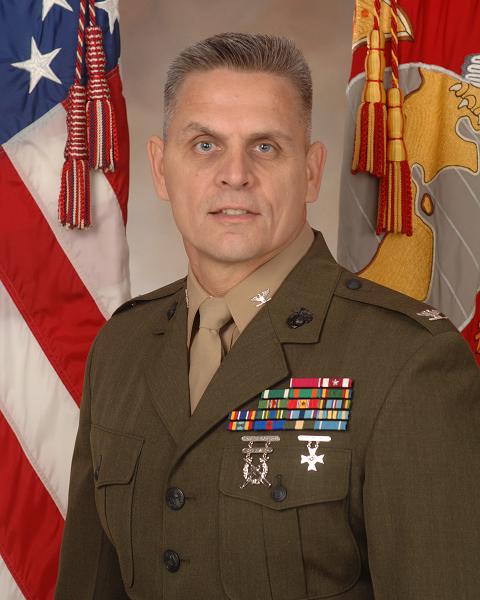 This month new and incriminating details have come to light about a secret meeting of high-level Quantico officials that took place on January 13, 2011, resulting in Manning's illegal punitive pretrial confinement.
This month new and incriminating details have come to light about a secret meeting of high-level Quantico officials that took place on January 13, 2011, resulting in Manning's illegal punitive pretrial confinement.
On March 2, 2011, PFC Bradley Manning, then confined under Maximum custody and Prevention of Injury Watch (POI) at Quantico, where he had been since July 29, 2010, was told that his Article 138 request to be placed under Medium custody and removed from harsh and punitive pretrial confinement was denied by Daniel J. Choike, Quantico base commander (pictured at the left).
The continued placement of Manning under such terms and conditions, indeed the exacerbation of his illegal pretrial confinement in March, when he was stripped every evening and forced to stand at attention naked every morning until his unexpected transfer to Fort Leavenworth on April 20, 2011, happened despite numerous cited evaluations by brig personnel, including brig psychiatrists, who recommended his removal from Maximum Custody and POI Status.
Defense had filed the original Article 138 request on January 19, 2011, one day after Manning was placed under "suicide risk", which resulted in his remaining in his cell for 24 hours a day and being stripped of all clothing with the exception of his underwear. His eyeglasses were also removed, which left him, as he describes in "total blindness". According to defense documents, the stripping and interrogation that Manning endured was videotaped by the Quantico facility.
On Wednesday, August 3rd at 8:30am a protest will be held at New South Wales Supreme Court, 184 Phillip St, Sydney Sydney, Australia. For more information see http://thejusticecampaign.org/.
Important Telephone Numbers:
Brandon Neely, has been a vocal critic of both Guantanamo Bay, and the war in Iraq. And he speaks from experience, since he was both a guard at Guantanamo during the the first six months the camp was open, and served in Iraq during the US invasion. In the course of his advocacy, he has offered testimony to the Center for Human Rights in the Americas, and appeared in numerous articles and on television programs, including a BBC program that recounts how he contacted two of his former prisoners on Facebook to express remorse for what he did. You can also find him on twitter, @BrandonTXNeely. He knew David Hicks while Hicks was incarcerated at GTMO.
To read WL Central's interview with Brandon Neely go here.
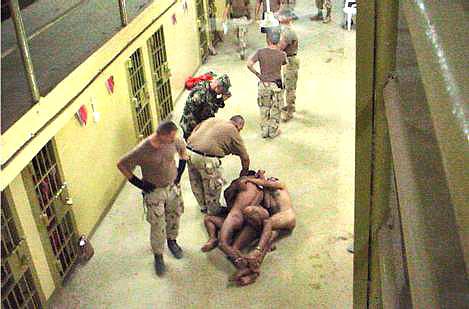 In 2010, WikiLeaks revealed through its release of the Iraq War Logs and its partnership with organizations like the Bureau of Investigative Journalism “303 allegations of [detainee] abuse by coalition forces were reported in the military files after 2004.” Then-Defense Secretary Donald Rumsfeld, who just published an op-ed in the Washington Post condemning WikiLeaks while at the same time using the information they have released to prop up his own views on US policy in the “war on terror,” pledged to “make changes as needed” to ensure that Abu Ghraib didn’t happen again.
In 2010, WikiLeaks revealed through its release of the Iraq War Logs and its partnership with organizations like the Bureau of Investigative Journalism “303 allegations of [detainee] abuse by coalition forces were reported in the military files after 2004.” Then-Defense Secretary Donald Rumsfeld, who just published an op-ed in the Washington Post condemning WikiLeaks while at the same time using the information they have released to prop up his own views on US policy in the “war on terror,” pledged to “make changes as needed” to ensure that Abu Ghraib didn’t happen again.
The Iraq War Logs proved changes had not been made. And now, with this new report out from The Investigative Fund at The Nation Institute and PBS’s Need to Know there is further confirmation that perpetrators of atrocities continue to go unpunished, those who allow for systemic abuse to continue have not been held accountable, and nothing has really changed since the Abu Ghraib scandal.
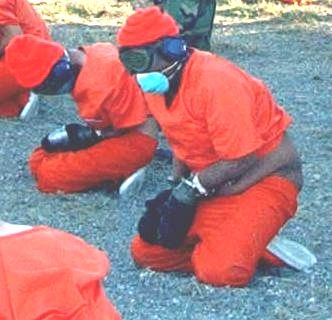 Between January 11, 2002 and April 23, 2011 (one day before the latest Wikileaks release of the Guantanamo files) there were already about 15 million search entries, 5 million images, 25,000 videos, 6 thousand news items, 900 related books
Between January 11, 2002 and April 23, 2011 (one day before the latest Wikileaks release of the Guantanamo files) there were already about 15 million search entries, 5 million images, 25,000 videos, 6 thousand news items, 900 related books
and around 80 releated movies - 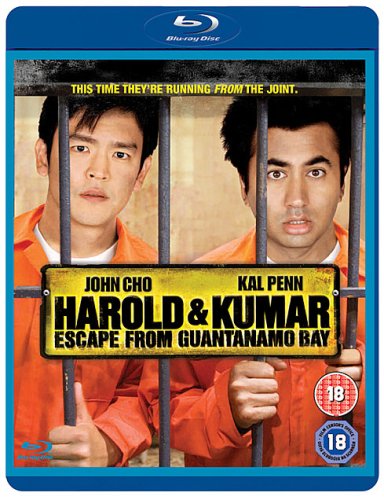 including an American stoner styled 'comedy' pictured to your right - about the Guantanamo bay detention and torture camp.
including an American stoner styled 'comedy' pictured to your right - about the Guantanamo bay detention and torture camp.
While new information has been published in Wikileaks' latest release of the Guantanamo files, a plethora of evidence about Guantanamo's child detainees, its specious justification and illegality were already available in the public domain. That includes a Senate Armed Services Committee report that stated that detainees were murdered in US custody.
As Jason Leopold said in my interview with him last week, "Murdered. I am talking about murder. I mean, this report talks about how the torture program was based on the US military's resistance to interrogation survival training technique...So, yes, you are absolutely right there are a number of documents and a number of reports that are out there. The problem is that people, and that includes some journalists, frankly don't take the time to read it."
The image above of 'Harold and Kumar Escape from Guantanamo' is not a comedy. It's a horror show. And, Guantanamo Bay is only the beginning of the entertainment superpower's 'theater of cruelty', coming to a town near you.
The institutions of society and of government - in other words, the organs of power, their structure, and their relationship to one another - the press, the legislature, the executive, and the judicial - no longer function in a manner that ensures their intended counter balance to tyranny. As a result our nation's civic, civil, and military power has been usurped by the highest bidder, some of them even foreign, and our democratic republic is drowning in a sea of Blackwater.
WL Central will be updating news on Bahrain, with new items added at the top. All times are ET in USA. You can contact me on twitter @carwinb or by email at carwinb@hushmail.com. Don't send media when links available. Most email is not encrypted and not anonymous. I cannot guarantee anyone's safety in transmission.
Current time and date in Manama, Bahrain:
Send Arabic #firstaid images by MMS/SMS/email or print as fliers usng http://bit.ly/gv3tS #Bahrain.
Amnesty calls for halt to execution of four young men who were protesters sentenced to die tomorrow by firing squad. Three others sentenced to life in prison.
[CORRECTION] My sincere apologies for the error in today's report. I regret any pain the headline may have caused. Please see revised headline and subtitle. - @carwinb
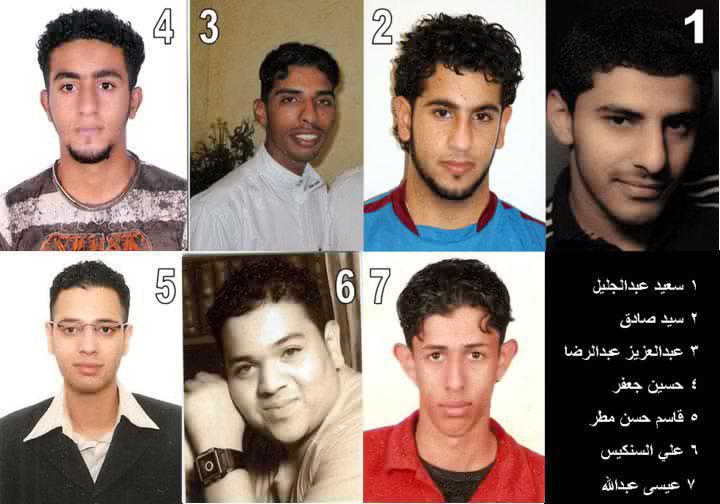
*Picture via @a340aviator
Death Sentence:
Life Sentences:
Excerpt from Amnesty International:
Authorities in Bahrain must not allow the execution of four protesters sentenced to death by a military court over the killing of two police officers in anti-government demonstrations last month, Amnesty International said today...
...“In this case, the accused were tried before a special military court, although they are civilians. It also appears that the trial was conducted behind closed doors. As well, those sentenced have no right of appeal except to another special military court, raising great fears about the fairness of the entire process.”
The court sentenced Ali Abdullah Hassan al-Sankis, Qassim Hassan Matar, Saeed Abduljalil Saeed and Adbulaziz Abdulridha Ibrahim Hussain to death on 28 April.
Three other defendants tried with them, Issa Abdullah Kadhim Ali, Sadeq Ali Mahdi and Hussein Jaafar Abdulkarim, were sentenced to life in prison by the same court. All seven accused are reported to have denied the charges. (Source: Amnesty International
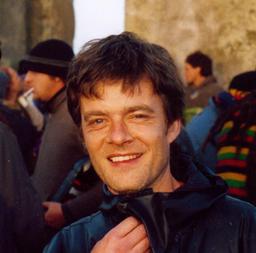 Andy Worthington is a journalist, blogger, and author of The Guantánamo Files: The Stories of the 774 Detainees in America’s Illegal Prison. He is also co-director of a new documentary film, “Outside the Law: Stories from Guantánamo”.
Andy Worthington is a journalist, blogger, and author of The Guantánamo Files: The Stories of the 774 Detainees in America’s Illegal Prison. He is also co-director of a new documentary film, “Outside the Law: Stories from Guantánamo”.
In 2009, Worthington revealed information about the demise of Ibn al-Shaykh al-Libi the former US 'ghost prisoner' whose alleged suicide death in a Libyan jail is still under suspicion.
Ibn al-Shaykh al-Libi's testimony, which was obtained under torture and coercion, and later recanted, was cited by the George W. Bush Administration in the months preceding the 2003 invasion of Iraq as evidence of a connection between Saddam Hussein and al-Qaeda.
The head of the Washington office of Human Rights Watch stated al-Libi was "Exhibit A" in hearings on the relationship between pre-Iraq War false intelligence and torture. Confirmation of al-Libi's location came two weeks prior to his death.
Most recently, Worthington partnered with WikiLeaks on its latest release of thousands of pages of documents regarding the cases of 758 out of 779 Guantanamo detainees dating between 2002 and 2008. The documents consist of memoranda from JTF-GTMO, the Joint Task Force at Guantánamo Bay, to US Southern Command in Miami, Florida.
You can find Mr. Worthington on his Web site or on twitter @GuantanamoAndy.
Transcript
I wanted to talk to you a little bit about a couple things that you had mentioned when you were talking with Amy Goodwin on Democracy Now. One of the things you talked about was that ‘guidelines’ needed to be set up for filtering or discriminating the content that was found in the documents. Could you tell me a little bit about what that would be like in terms of application?
Well, you know, to be honest...a certain amount of hard work is required and some of that has already been done… I am glad to know…by some of the journalists who’ve been writing about it already...who have worked out that a lot of this supposed ‘body of evidence’ consists of allegations that have been made by a small number of prisoners… who have made repeated allegations against large numbers of their fellow prisoners, which have been called into doubt.
Now, you know, the doubts about this information are not necessarily mentioned, in fact, they are rarely mentioned in these military documents.
 Jason Leopold is the deputy managing editor of Truthout.org and a co-founder of The Public Record.
Jason Leopold is the deputy managing editor of Truthout.org and a co-founder of The Public Record.
As an investigative journalist he has written extensively on the Guantanamo Bay detention and torture camp, Enron, and the Military. The list goes on.
In February 2011, Leopold interview Australian David Hicks, a former Guantanamo detainee. It was Hicks' first interview about the torture and abuse he endured at Guantanamo, and his struggle with the injustice of US ex-judicial processes.
Leopold and his colleague, Jeffrey Kaye, have also investigated medical experiments at Guantanamo and psychological techniques used to design Bush's torture program.
His work has been published in The Los Angeles Times, The Nation, Salon, The Wall Street Journal, The San Francisco Chronicle, The Financial Times, Alternet, Z Magazine, Earth Island Journal, Homeland Security Today, and numerous other national and international publications.
Leopold was the recipient of the Project Censored award two times for his investigative work on Halliburton and Enron. He was awarded the Thomas Jefferson award by The Military Religious Freedom Foundation for a series of stories on the rise of Christian fundamentalism in the U.S. Military.
You can find him on twitter at @JasonLeopold.
What is particularly unique about the documents from the latest Wikileaks’ release?
Obama on Manning: “He Broke the Law”
At a fundraiser for President Barack Obama at the St. Regis Hotel in San Francisco, a group of progressive supporters of Bradley Manning paid tens of thousands of dollars to attend and disrupt the event. Oakland activist Naomi Pitcairn personally paid for tickets so people from her group could attend. The group sang a song with lyrics they wrote expressing their disgust with the way the Obama Administration has responded to Manning’s inhumane treatment.
Someone with the group also managed to confront President Obama on Manning. Obama’s handlers may have been preoccupied because in this clip that runs about a minute Obama opens up about what he thinks about what Manning did.
“People can have philosophical ideas about certain things,” President Obama explains. “But, look, I can’t conduct diplomacy on open source.” He then goes on to add that he has to abide by certain classified information rules or law and if he had released material like Manning did he’d be breaking the law.
Now, here is the remark that deserves the most attention: “We’re a nation of laws. We don’t individually make our decisions about how the laws operate.” He adds, “He broke the law.” Finally, before removing himself from the conversation, he says Manning “dumped” information and “it wasn’t the same thing” as what Daniel Ellsberg did because what Ellsberg leaked “wasn’t classified in the same way.”
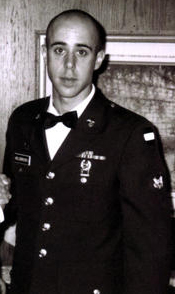 This is our second interview in a series of interviews with former Guantanamo Bay detention camp guards and detainees.
This is our second interview in a series of interviews with former Guantanamo Bay detention camp guards and detainees.
Several current and former U.S. soldiers have expressed interest in speaking publicly about their experience at Guantanamo: including a CIA psychologist, interrogators, guards, and medical personnel. They are disgusted with what they witnessed or took part in at Guantanamo, but declined my request for an interview, because they fear opening themselves up to prosecution by the US government, which required them to sign a Non Disclosure Agreement.
I was also told that many are afraid of being prosecuted for war crimes, since low level soldiers are often the ones who shoulder the brunt of punishment and backlash; whereas higher ranking officials seem to escape scrutiny completely.
Terry Holdbrooks is a former guard at the Guantanamo Bay detention camps. He was stationed at GTMO in 2003 and 2004. During his time there, he converted to Islam. He is now a vocal critic of the camp. You can find him on twitter @BrotherMustafa
Vote for Bradley Manning in The 2011 TIME 100 Poll, here!
As of today, April 8, 2011, Bradley Manning is ranked at No. 39 out of 203 nominees for TIME Magazine's 2011 100 Poll. Julian Assange is ranked at No. 8.
The popular mag invites readers to: "Cast your votes for the leaders, artists, innovators, icons and heroes that you think are the most influential people in the world. The winner will be included in the TIME 100. Voting closes on April 14" (Source: TIME Magazine).
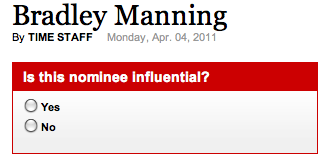
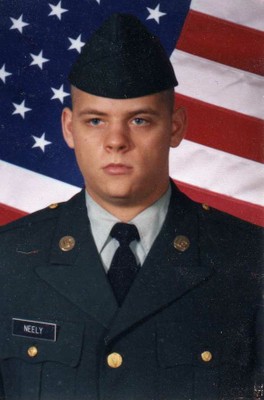 This is our first interview in a series of interviews with former Guantanamo Bay detention camp guards and detainees.
This is our first interview in a series of interviews with former Guantanamo Bay detention camp guards and detainees.
Several current and former U.S. soldiers have expressed interest in speaking publicly about their experience at Guantanamo: including a CIA psychologist, interrogators, guards, and medical personnel. They are disgusted with what they witnessed or took part in at Guantanamo, but declined my request for an interview, because they fear opening themselves up to prosecution by the US government, which required them to sign a Non Disclosure Agreement .
I was also told that many are afraid of being prosecuted for war crimes, since low level soldiers are often the ones who shoulder the brunt of punishment and backlash; whereas higher ranking officials seem to escape scrutiny completely.
Brandon Neely, has been a vocal critic of both Guantanamo Bay, and the war in Iraq. And he speaks from experience, since he was both a guard at Guantanamo during the the first six months the camp was open, and served in Iraq during the US invasion. In the course of his advocacy, he has offered testimony to the Center for Human Rights in the Americas, and appeared in numerous articles and on television programs, including a BBC program that recounts how he contacted two of his former prisoners on Facebook to express remorse for what he did. You can also find him, where I did, on twitter, @BrandonTXNeely.
*Apologies for the first seconds of poor audio quality.
Listen to Part 1 of 8 here
Transcript
 This is our first interview in a series of interviews with former Guantanamo Bay detention camp guards and detainees.
This is our first interview in a series of interviews with former Guantanamo Bay detention camp guards and detainees.
Several current and former U.S. soldiers have expressed interest in speaking publicly about their experience at Guantanamo: including a CIA psychologist, interrogators, guards, and medical personnel. They are disgusted with what they witnessed or took part in at Guantanamo, but declined my request for an interview, because they fear opening themselves up to prosecution by the US government, which required them to sign a Non Disclosure Agreement .
I was also told that many are afraid of being prosecuted for war crimes, since low level soldiers are often the ones who shoulder the brunt of punishment and backlash; whereas higher ranking officials seem to escape scrutiny completely.
Brandon Neely, has been a vocal critic of both Guantanamo Bay, and the war in Iraq. And he speaks from experience, since he was both a guard at Guantanamo during the the first six months the camp was open, and served in Iraq during the US invasion. In the course of his advocacy, he has offered testimony to the Center for Human Rights in the Americas, and appeared in numerous articles and on television programs, including a BBC program that recounts how he contacted two of his former prisoners on Facebook to express remorse for what he did. You can also find him, where I did, on twitter, @BrandonTXNeely.
 This is our first interview in a series of interviews with former Guantanamo Bay detention camp guards and detainees.
This is our first interview in a series of interviews with former Guantanamo Bay detention camp guards and detainees.
Several current and former U.S. soldiers have expressed interest in speaking publicly about their experience at Guantanamo: including a CIA psychologist, interrogators, guards, and medical personnel. They are disgusted with what they witnessed or took part in at Guantanamo, but declined my request for an interview, because they fear opening themselves up to prosecution by the US government, which required them to sign a Non Disclosure Agreement .
I was also told that many are afraid of being prosecuted for war crimes, since low level soldiers are often the ones who shoulder the brunt of punishment and backlash; whereas higher ranking officials seem to escape scrutiny completely.
Brandon Neely, has been a vocal critic of both Guantanamo Bay, and the war in Iraq. And he speaks from experience, since he was both a guard at Guantanamo during the the first six months the camp was open, and served in Iraq during the US invasion. In the course of his advocacy, he has offered testimony to the Center for Human Rights in the Americas, and appeared in numerous articles and on television programs, including a BBC program that recounts how he contacted two of his former prisoners on Facebook to express remorse for what he did. You can also find him, where I did, on twitter, @BrandonTXNeely.
 This is our first interview in a series of interviews with former Guantanamo Bay detention camp guards and detainees.
This is our first interview in a series of interviews with former Guantanamo Bay detention camp guards and detainees.
Several current and former U.S. soldiers have expressed interest in speaking publicly about their experience at Guantanamo: including a CIA psychologist, interrogators, guards, and medical personnel. They are disgusted with what they witnessed or took part in at Guantanamo, but declined my request for an interview, because they fear opening themselves up to prosecution by the US government, which required them to sign a Non Disclosure Agreement .
I was also told that many are afraid of being prosecuted for war crimes, since low level soldiers are often the ones who shoulder the brunt of punishment and backlash; whereas higher ranking officials seem to escape scrutiny completely.
Brandon Neely, has been a vocal critic of both Guantanamo Bay, and the war in Iraq. And he speaks from experience, since he was both a guard at Guantanamo during the the first six months the camp was open, and served in Iraq during the US invasion. In the course of his advocacy, he has offered testimony to the Center for Human Rights in the Americas, and appeared in numerous articles and on television programs, including a BBC program that recounts how he contacted two of his former prisoners on Facebook to express remorse for what he did. You can also find him, where I did, on twitter, @BrandonTXNeely.
 This is our first interview in a series of interviews with former Guantanamo Bay detention camp guards and detainees.
This is our first interview in a series of interviews with former Guantanamo Bay detention camp guards and detainees.
Several current and former U.S. soldiers have expressed interest in speaking publicly about their experience at Guantanamo: including a CIA psychologist, interrogators, guards, and medical personnel. They are disgusted with what they witnessed or took part in at Guantanamo, but declined my request for an interview, because they fear opening themselves up to prosecution by the US government, which required them to sign a Non Disclosure Agreement .
I was also told that many are afraid of being prosecuted for war crimes, since low level soldiers are often the ones who shoulder the brunt of punishment and backlash; whereas higher ranking officials seem to escape scrutiny completely.
Brandon Neely, has been a vocal critic of both Guantanamo Bay, and the war in Iraq. And he speaks from experience, since he was both a guard at Guantanamo during the the first six months the camp was open, and served in Iraq during the US invasion. In the course of his advocacy, he has offered testimony to the Center for Human Rights in the Americas, and appeared in numerous articles and on television programs, including a BBC program that recounts how he contacted two of his former prisoners on Facebook to express remorse for what he did. You can also find him, where I did, on twitter, @BrandonTXNeely.
 This is our first interview in a series of interviews with former Guantanamo Bay detention camp guards and detainees.
This is our first interview in a series of interviews with former Guantanamo Bay detention camp guards and detainees.
Several current and former U.S. soldiers have expressed interest in speaking publicly about their experience at Guantanamo: including a CIA psychologist, interrogators, guards, and medical personnel. They are disgusted with what they witnessed or took part in at Guantanamo, but declined my request for an interview, because they fear opening themselves up to prosecution by the US government, which required them to sign a Non Disclosure Agreement .
I was also told that many are afraid of being prosecuted for war crimes, since low level soldiers are often the ones who shoulder the brunt of punishment and backlash; whereas higher ranking officials seem to escape scrutiny completely.
Brandon Neely, has been a vocal critic of both Guantanamo Bay, and the war in Iraq. And he speaks from experience, since he was both a guard at Guantanamo during the the first six months the camp was open, and served in Iraq during the US invasion. In the course of his advocacy, he has offered testimony to the Center for Human Rights in the Americas, and appeared in numerous articles and on television programs, including a BBC program that recounts how he contacted two of his former prisoners on Facebook to express remorse for what he did. You can also find him, where I did, on twitter, @BrandonTXNeely.
 This is our first interview in a series of interviews with former Guantanamo Bay detention camp guards and detainees.
This is our first interview in a series of interviews with former Guantanamo Bay detention camp guards and detainees.
Several current and former U.S. soldiers have expressed interest in speaking publicly about their experience at Guantanamo: including a CIA psychologist, interrogators, guards, and medical personnel. They are disgusted with what they witnessed or took part in at Guantanamo, but declined my request for an interview, because they fear opening themselves up to prosecution by the US government, which required them to sign a Non Disclosure Agreement .
I was also told that many are afraid of being prosecuted for war crimes, since low level soldiers are often the ones who shoulder the brunt of punishment and backlash; whereas higher ranking officials seem to escape scrutiny completely.
Brandon Neely, has been a vocal critic of both Guantanamo Bay, and the war in Iraq. And he speaks from experience, since he was both a guard at Guantanamo during the the first six months the camp was open, and served in Iraq during the US invasion. In the course of his advocacy, he has offered testimony to the Center for Human Rights in the Americas, and appeared in numerous articles and on television programs, including a BBC program that recounts how he contacted two of his former prisoners on Facebook to express remorse for what he did. You can also find him, where I did, on twitter, @BrandonTXNeely.
 This is our first interview in a series of interviews with former Guantanamo Bay detention camp guards and detainees.
This is our first interview in a series of interviews with former Guantanamo Bay detention camp guards and detainees.
Several current and former U.S. soldiers have expressed interest in speaking publicly about their experience at Guantanamo: including a CIA psychologist, interrogators, guards, and medical personnel. They are disgusted with what they witnessed or took part in at Guantanamo, but declined my request for an interview, because they fear opening themselves up to prosecution by the US government, which required them to sign a Non Disclosure Agreement .
I was also told that many are afraid of being prosecuted for war crimes, since low level soldiers are often the ones who shoulder the brunt of punishment and backlash; whereas higher ranking officials seem to escape scrutiny completely.
Brandon Neely, has been a vocal critic of both Guantanamo Bay, and the war in Iraq. And he speaks from experience, since he was both a guard at Guantanamo during the the first six months the camp was open, and served in Iraq during the US invasion. In the course of his advocacy, he has offered testimony to the Center for Human Rights in the Americas, and appeared in numerous articles and on television programs, including a BBC program that recounts how he contacted two of his former prisoners on Facebook to express remorse for what he did. You can also find him, where I did, on twitter, @BrandonTXNeely.
This story was written by @carwinb and @exiledsurfer. Recent updates by @kgosztola.
[UPDATE 2011-03-06]
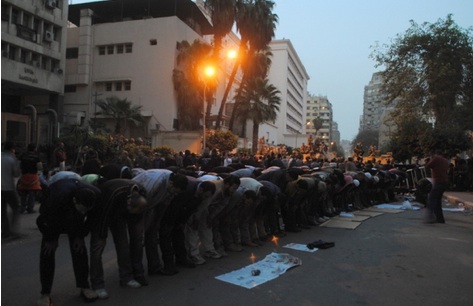 Photo by LilianWagdy of protesters praying in front of SS headquarters in Lazoghly
Photo by LilianWagdy of protesters praying in front of SS headquarters in Lazoghly
Some protesters are out in Tahrir and some are still even out in and around Lazoghly, where army clashes took place earlier. The protesters were headed to the State Security headquarters. Smoke was coming from the building. State Security has been shredding, burning and destroying documents that presumably would incriminate them, as many like Habib el-Adly, former head of the Interior Ministry, are going to be facing investigations or trials.
Amn Dawla Leaks Website tweets the following links to documents [not in English]: "Outright fraud in the election of the Chamber of Commerce"
And a few on selecting judges:
"Letter to the security of the State Requests sort of judges between the cooperative and is in preparation for the selection of the elections", SSI intervention in identifying some of the judges, and nomination of names of some judges of "collaborators" to monitor the elections
WL Central reported on a document detailing a natural gas deal with Israel. Now, here from Al Masry Al Youm, an article describing the document and giving a little background.
Theme by Danetsoft and Danang Probo Sayekti inspired by Maksimer